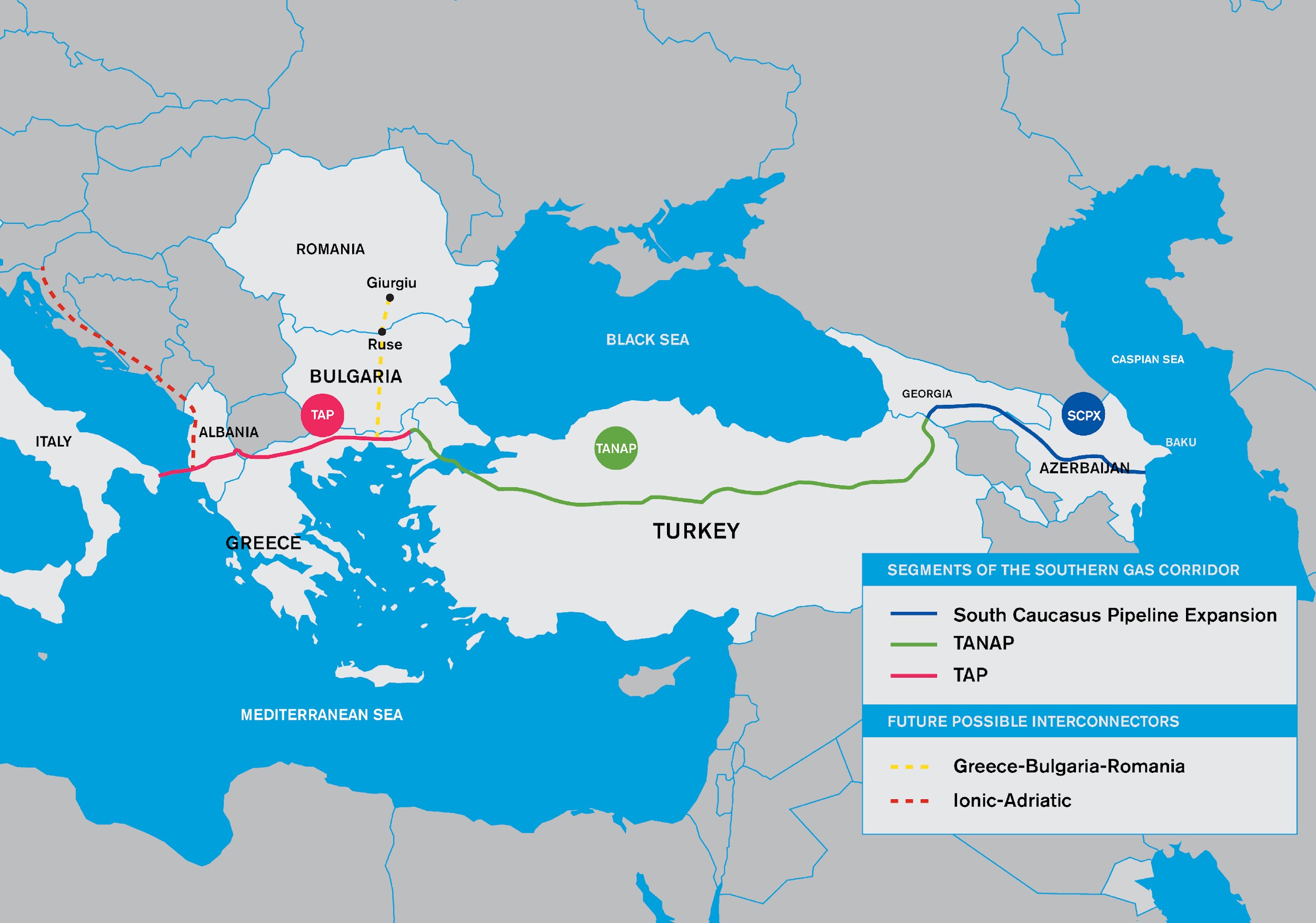Geopolitical importance of Azerbaijan in the Global System
At the last two decades of the 20th century, energy did not receive much attention from the international community—with the exception of the Gulf Wars—due to relatively low prices. During the beginning of the new millennium, this low evaluation of energy began to shift as oil and gas prices started to rise in 1999. From 2003 to 2006, global oil prices doubled, while China and India’s economies continued to expand rapidly. Naturally, these growing economies demanded more energy resources, becoming one of the major factors increasing the global importance of energy—and of countries rich in oil and gas.
After declaring independence, Azerbaijan became a new energy supplier for Western countries, significantly increasing its geopolitical importance. Its relationships with the West—especially on energy issues—have taken on a central role in Azerbaijan’s foreign policy.
In addition, military planners and foreign policy specialists have taken renewed interest in so-called oil politics, emphasizing the intersection between geopolitics and geo-economics, which ultimately shapes contemporary geo-strategies.
The Strategic Importance of Azerbaijan to the West
Azerbaijan’s significance to the West can be viewed from two main perspectives:
1. Geopolitical Location
Azerbaijan occupies a vital geographic position, located at the crossroads of the Middle East, Europe, and Asia. The South Caucasus has historically been an area of strategic competition among hegemonic powers. In the modern era, this competition is primarily between Russia and the United States. The U.S., a relatively new geopolitical actor in the region, has pursued policies that counterbalance Russian influence in the South Caucasus and specifically in Azerbaijan.
For Russia, controlling the South Caucasus means applying pressure on the West—especially in energy matters. For the United States, with its military engagements in Iraq and Afghanistan, and with Uzbekistan’s shift toward Russia and the Shanghai Cooperation Organization’s anti-Western tilt in 2006, gaining influence in the Caucasus became crucial for its global geo-strategy.
2. Energy Transport and Diversification
At the same time, local (Georgia), regional (Turkey, Kazakhstan), and global (China, the U.S., and the EU) actors are working to break Russia’s near-monopoly over energy transport from Eurasia. They aim to develop alternative routes to access Caspian and Central Asian energy resources. Azerbaijan plays a key role both as a producer and as a transit country for oil and gas pipelines from Kazakhstan and Turkmenistan.
The Caspian Sea region, including the South Caucasus and Central Asia, holds 3–4% of global oil reserves and 4–6% of global gas reserves. While these reserves alone may not suffice to dominate global energy supply, in a context of uncertainty surrounding the Persian Gulf, and with Russia’s increasing use of energy as a geopolitical weapon (as seen in the Ukraine crisis), the reliable transport of Caspian and Central Asian energy via the Caucasus has become a top strategic priority for the West.
This makes Azerbaijan a critical player in energy security and geo-strategy. Ensuring stability in Azerbaijan and the South Caucasus is now viewed as essential for the uninterrupted flow of energy resources to Europe and beyond.
Impact of the Russia–Ukraine War
The Russia–Ukraine war, which began in 2022, has dramatically accelerated the West’s efforts to diversify away from Russian energy. As a result, Azerbaijan’s strategic value has further increased. The European Union and other Western powers have intensified cooperation with Baku, seeking greater volumes of Azerbaijani oil and natural gas to replace disrupted Russian supplies.
In July 2022, the EU signed a new energy deal with Azerbaijan to double gas exports to Europe by 2027. This agreement is part of a broader strategy to strengthen the Southern Gas Corridor, which includes the Trans Adriatic Pipeline (TAP) and Trans-Anatolian Pipeline (TANAP)—crucial links that transport Caspian gas to European markets.
Thus, Azerbaijan’s role is no longer limited to regional geopolitics—it is now a key actor in reshaping Europe’s energy security architecture. This transformation is not only economic but deeply geopolitical, placing Azerbaijan in the center of a shifting global energy order.
Bilateral Energy Diplomacy and Global Competition
Energy supplies, energy security, and related subjects are among the main issues discussed during bilateral meetings between Azerbaijani and Western officials. A major objective of these dialogues is to develop pipelines from Central Asia through Azerbaijan, Georgia, and Turkey to Western markets.
At the same time, China and India, with their rapidly growing economies and mounting energy demands, are also seeking access to these resources. As global powers compete for energy dominance, Azerbaijan finds itself in an increasingly influential position—not only as a supplier and transit state but also as a balancing power in the evolving multipolar global order.
